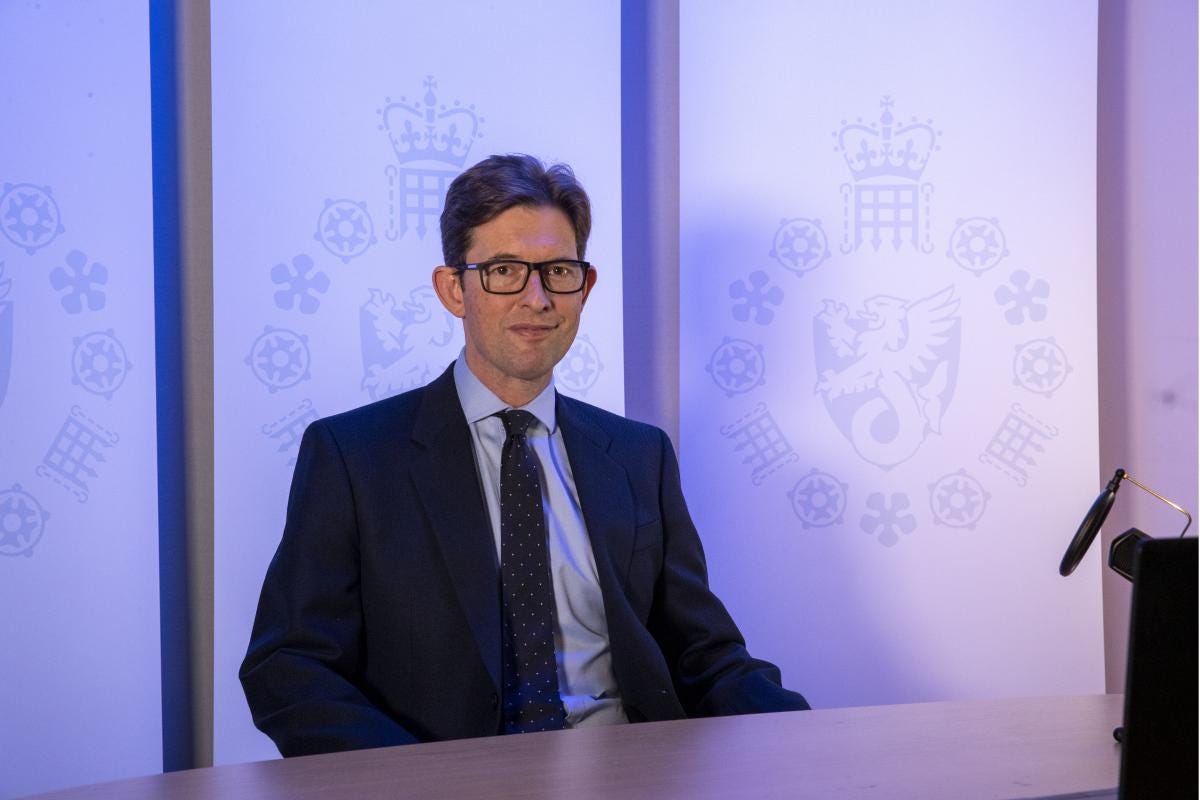London: The new Chancellor Jeremy Hunt released his “autumn budget
MI5 Director General Ken McCallum gave his annual threat update, explaining the increasingly complex variety of terror threats facing the UK and the challenges posed by states, in particular the elected authoritarian regimes in Russia, China, and Iran.
MI5 is working to detect and prevent Russian aggression, covert and overt, and they are familiar with Russia’s toolkit. The Chinese Communist Party was described as a threat to the UK’s national and economic security and to the UK’s political system, using intimidation, repression, and pressure to achieve influence over parliamentarians and people in public life. Iran is regarded as the state actor that crosses the most frequently into terrorism, and it continues to be a profoundly destabilising actor in its region and beyond.
McCallum recognised that further danger comes when these actors’ interests converge and they loan players to each other, amplifying their strengths.
He stated that Islamist terrorism remains three-quarters of MI5’s terrorist caseload, including sophisticated plots directed against the UK from Islamist terrorist groups based overseas, with the other quarter being extreme right-wing terrorism, also with influencers operating globally, fuelling grievances and amplifying conspiracy theories.
McCallum said as terrorism in its various forms continues to evolve, MI5 continually adapts and improves the UK’s counter-terrorist system with the police, MI6, GCHQ, the newly established Counter-Terrorism Operations Centre, and the Alan Turing Institute.
At the G20 in Bali, Prime Minister Rishi Sunak stressed the Indo-Pacific region’s importance to global security and prosperity, labelling China a “systemic challenge,” a significant departure from his predecessor, Liz Truss, who was willing to label China a threat. On 17 November, in the House of Commons, when questioned about appeasing the Chinese dictatorship, Sunak replied, “Our approach to China is in complete alignment with the United States, Canada, and Australia. It is one that is clear-eyed about the challenges that China poses to our values, interests, and economic security, which is why it is right that we take robust action to defend ourselves against that, as we saw just yesterday with the decision on Chinese investment in a sensitive industry in this country.” Sunak was referring to the decision by the Business Secretary, Grant Shapps, to sell at least 86% of Nexperia Newport Limited (formerly Newport Wafer Fab, the silicon semiconductor wafer manufacturer) to mitigate the risk to the UK’s national security. Nexperia is owned by China’s Wingtech Technology; China opposes this decision and calls it discriminatory.
In a letter to MPs, the Commons Speaker, Sir Lindsay Hoyle, warned that “hostile states continue to target Parliamentarians to gain insight into, or exert influence over, our democratic processes for their economic, military, or political advantage.” MPs were advised not to have or hold sensitive conversations or text messages on their mobile phones, as they could be targeted and accessed by hostile states. Security Minister Tom Tugendhat says British democracy is under attack, and he is leading a new taskforce to protect the UK’s core sovereignty and examine the full range of threats facing the UK’s democratic institutions. This refers to British university links with and reliance on China, as well as the discovery by a Spanish civil liberties group of a global network of undeclared Chinese police hubs, including some in the UK, that are used to silence dissenters and force them to return home.
The Government’s National Security Bill has passed the final stage in the Commons and now goes to the House of Lords, moving towards becoming law. The bill makes it illegal to be an undeclared spy in the UK and will criminalise those who do not, strengthening the resilience of the UK political system against covert foreign influence.
Meanwhile, Greg Hands, Trade Minister, co-hosted the UK-Taiwan 25th annual Trade Talks in Taipei to boost trade and future-proof the UK’s economy through collaboration on green trade and supply chains. The UK is already a major partner in Taiwan’s green transition, with more than 38 British companies already having set up offices there. Visiting Taiwan in person is a clear signal of the UK’s commitment to boosting UK-Taiwan trade ties and freedom of navigation in the Indo-Pacific. Like the UK, Taiwan is a champion of free and fair trade underpinned by rules-based global trading. As a leading manufacturer of semiconductors, Taiwan is a key player in global supply chains. Hands will promote diversified, resilient supply chains and greater economic cooperation.
It seems that a minister will no longer answer daily questions on behalf of the government during breakfast TV; it is reported that frontbenchers will only appear when the government has an announcement to make.
MI5 continually adapts to counter terrorism
इस शब्द का अर्थ जानिये
- Advertisement -

